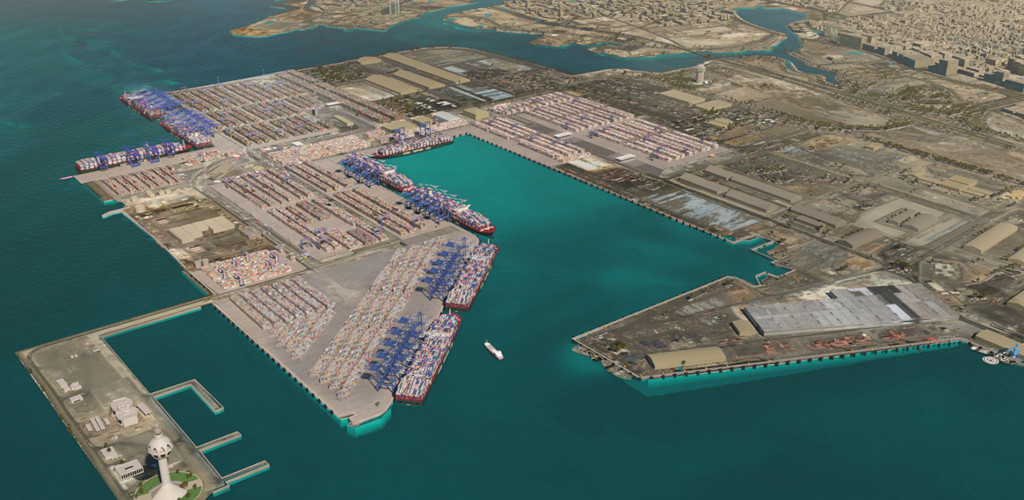Operator’s Move Into Multipurpose Aims To Capture Emerging Opportunities

By Simon West
Red Sea Gateway Terminal (RSGT) in Saudi Arabia has secured 20-year concessions to operate and develop four port facilities on the Red Sea, expanding its footprint into multipurpose terminal operations. The deals, signed with the Saudi Ports Authority (Mawani) and backed by a planned US$418 million investment, grant RSGT operational responsibility at Jeddah Islamic Port, King Fahd Industrial Port in Yanbu, Yanbu Commercial Port, and the Port of Jazan. We caught up with RSGT's managing director Lars Greiner to find out more about RSGT’s exciting move into multipurpose operations.
From Issue 4, 2025 of Breakbulk Magazine.
.jpg) Q: What was the rationale behind expanding into multipurpose terminal operations at this stage in RSGT’s growth?
Q: What was the rationale behind expanding into multipurpose terminal operations at this stage in RSGT’s growth?
Greiner: RSGT’s expansion into multipurpose terminal operations is a natural evolution of our long-term strategy. Since 2020, we’ve grown from a single terminal into a diversified operator with six terminals across container and noncontainerized cargo. The move allows us to capture emerging opportunities in roll-on, roll-off, breakbulk, bulk and project cargo, all sectors aligned with Saudi Arabia’s evolving industrial base. By diversifying, we not only expand our service offering but also hedge operational risk and deepen our role in the regional and global supply chain.
Q: What kind of technologies and equipment will be introduced to bring these terminals to world-class standards?
Greiner: In the container terminal, we are investing heavily in automation, digital yard management systems and smart gate technologies, leveraging lessons from our Jeddah terminal, where remote-controlled cranes and automated gate solutions significantly reduced operating costs. Multipurpose terminals generally lag behind; however we will be applying the same digital-first approach to cargo handling and logistics management. We will focus on the digitalization of the documentation and information flows to achieve efficiencies through information and then progress this to automation of various cargo handling as the Saudi markets develop. We also plan to introduce future-ready green infrastructure, such as electric handling equipment and potential shore power systems, aligning with our ESG goals and investor expectations.
Q: How will the move into multipurpose boost RSGT’s capabilities in handling breakbulk and project cargo?
Greiner: Multipurpose terminals enable us to handle a broader range of cargo types, including breakbulk (dry and liquid), heavy-lift, RoRo (vehicular and high and heavy), and oversized project cargo, which are essential to Saudi Arabia’s industrial and infrastructure ambitions. These capabilities position RSGT as a key partner for heavy industry in the engineering and construction sectors that rely on complex logistics as well as the significant automotive sector. The shift also complements our existing container operations, giving our clients a one-stop logistics platform with high-capacity throughput and the operational expertise to manage diverse cargo profiles.
Q: Which of the four new ports do you see as having the greatest potential for growth in breakbulk and project cargo handling?
Greiner: Jeddah Islamic Port is the most significant port in the Red Sea, being well established as a known international hub port. It is well-positioned to grow the steel and automotive imports, with two segments seeing strong growth tied to Vision 2030 construction and mobility goals. Additionally, Yanbu Industrial Port stands out due to its proximity to the petrochemical plants’ activities. It’s poised to become the highest volume terminal in our multipurpose portfolio, supporting both imports for major industrial projects and future exports of processed minerals.
Q: How do you see RSGT’s role evolving in serving inland infrastructure, industrial or giga-projects that require project logistics?
Greiner: Our role is shifting from being purely a terminal operator to becoming a strategic logistics partner for national development. The expansion into multipurpose terminals allows us to directly support giga projects and industrial zones that require specialized cargo handling. We’re aligning closely with inland demand by offering scalable, flexible logistics solutions that can accommodate time-sensitive, heavy, or non-standard freight, essential for construction, mining and energy infrastructure.
Q: Do you have any plans to further expand RSGT’s operations within Saudi Arabia, or even abroad?
Greiner: While our current priority is the seamless integration and development of the newly awarded multipurpose terminals, we continue to explore strategic expansion opportunities both locally and internationally. Our focus remains on emerging markets where trade growth, infrastructure demand, and economic transformation align with our operational expertise. We’re not pursuing growth for its own sake; we’re selective, targeting opportunities that complement our capabilities, offer scalability, and reinforce our role as a resilient and forward-looking logistics partner.
RSGT and Mawani are exhibitors at Breakbulk Middle East.
TOP PHOTO: RSGT at Jeddah Islamic Port KSA. CREDIT: RSGT
